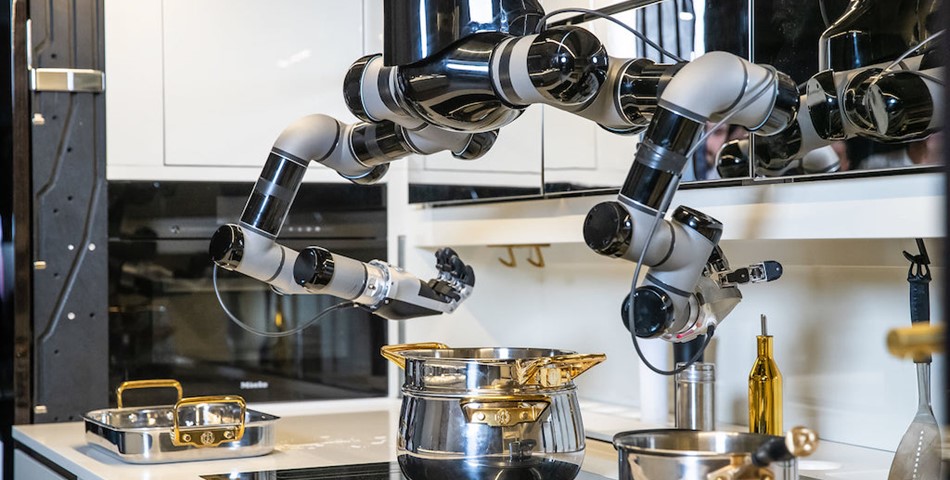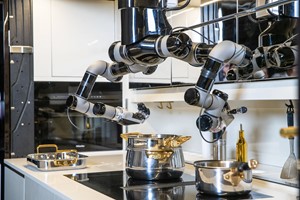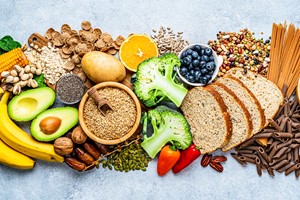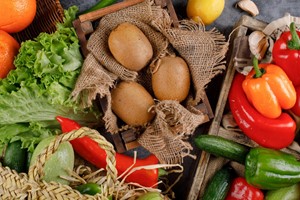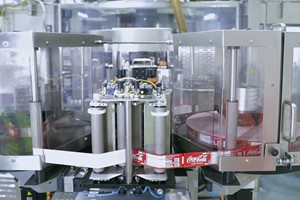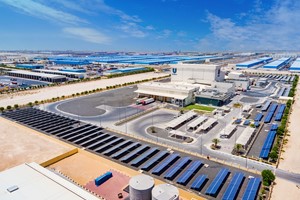In a new report, sustainable protein and automation were named two of the top five trends set to shape the future of the food industry. Researchers at DigitalFoodLab also highlighted resilient farms, retail efficiency, and personalised food as key “megatrends” for industry watchers to look out for.
There are going to be five “megatrends” that will shape the future of food, according to a new food tech trend report from Paris-based food tech insight consultancy DigitalFoodLab. Published on Tuesday (October 26), the 70-page report is based around 23 key sub-trends that have been grouped into five main categories.
Sustainable protein
One of the key trends set to make its mark on the food system is sustainable protein. Sustainable protein includes alternatives to animal food products, such as meat, eggs, and dairy, that leverage novel food technologies such as plant-based, cell-based, and fermentation.
These products seek to replace conventionally-produced animal products, which contribute around 18% of global GHG emissions. The report also includes insect proteins in this category, but notes that this sector is in a “hard position” against other alternatives.
Analysts at DigitalFoodLab expect these sources of reliable, sustainable and affordable proteins to make a dent in the animal protein market in around a decade. “[They] won’t replace the animal in the short term, but they may at least absorb the growing demand for more protein in the 10 to 15 years.”
The prediction comes after the consultancy published its data on the stability of investment inflows into the European food tech sector in 2020 despite the pandemic. European food techs bagged $3.2 billion over the year, maintaining the figure recorded in 2019, with the majority of the investment bagged by alternative protein startups.
Food automation
Food automation refers to the “increasing desire for fast deliveries of food products”, a trend that has only accelerated with Covid-19 keeping more consumers at home and driving the adoption of online delivery in almost every market demographic. To keep up with the demand, the researchers believe that companies across the food industry will be looking to automation to speed up food delivery to consumers.
Industry watchers can expect automation such as robots, drones, and other smart tech to be increasingly incorporated across the entire value chain, from warehouses to cloud kitchens or virtual kitchens. “The use of robots, drones, and AI could massively change the way these businesses are run and make them much more profitable,” says the report.
While skeptics might argue that robots will never replace humans, DigitalFoodLab believes that ultimately, automation will still make a significant impact on the future of food. “The question seems to be much more to be at which level of automation each individual segment of this chain will go. If it will certainly not be a full automation, this level will be much closer to 100% than 0%.”
Resilient farms, the future of retail and food personalisation
Other key megatrends that the report spotlighted included “the resilient farm”, which refers to the augmentation and smartification of existing farms, as well as the increasing adoption of indoor urban farms. DigitalFoodLab expects the future of agriculture to be made up of a “combination of the two”—where new ag-technologies converge on traditional farmland, and novel growing technologies like vertical and indoor solutions are increasingly supplying the world’s produce.
In the latter sector, analysts noted that an increasing number of startups offering vertical, hydroponic and indoor farm solutions have gone public via SPACs, including players like AeroFarms.
The “future of retail” is also set to change the food ecosystem, driven by the pandemic-related surge in demand for operational efficiency, with more consumers staying indoors and purchasing food for their kitchens rather than dining out.
“The pandemic has not only made consumers change their habits. It has also “revealed” to many investors and entrepreneurs that food retail was a massive and undisrupted business,” says the report. “They have launched and financed many new ventures that are now threatening the status quo and trying to reinvent what a grocery store and a restaurant is.”
Finally, personalised food will be a trend to watch in the long-term, with the report saying that while it is “still a far-fetched dream”, the concept is “getting more ground.” This category refers to personalised food to fit specific consumer needs, and will broadly move towards three main paths: supplements, micro-nutritional dosing with the help of wearable technology or digital devices, and subscription meal plans that have been customised for consumers.
Sally Ho




